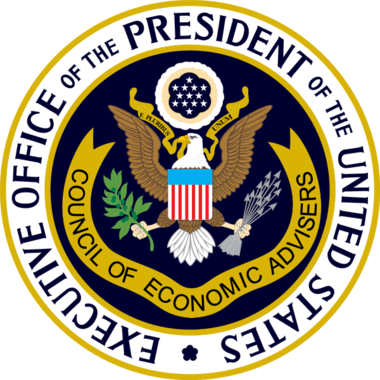Political economy
Political Economy is the study of economics in a political context, it examines how economics and politics interact to create government policy.[3] Political economy is generally concerned with one issue, the welfare of the country and how best to maximize it. While the goal is the same, different theories approach the problem in different ways.[3] Free market systems advocate little government intervention and maintain the idea that a free exchanges of goods, services and ideas will produce the best allocation. Proponents of a centrally planned economy think the government should control the flow of goods and services to ensure the optimal allocation and greatest welfare. This debate is largely a historical one, today almost every system is a mixed economy that combines a free market economy with some government intervention to ensure efficient allocations in markets such as healthcare and education, although nations exist on a spectrum where government intervention is more in some nations and less in others.
Today, the debate is largely concerned with economic policies to ensure the maximum welfare for a nation and the debates over positive and normative economics.[1]
- Positive economics- Is the study of past economic events such as the Great Depression or the 2008 Financial Crisis, positive economics seeks to determine the causes of such phenomena but stops short of recommending future policies. [4]
- Normative economics- This study is concerned with making recommendations to governments about what policies economists think will be best for the nation. Normative economists advocate for what 'ought' to be done in an economy.[5]
Economics and Policy
When faced with a problem that involves both politics and economics (as almost all political and economic problems do) political economy determines what is not necessarily the most economically efficient or the most politically desirably option but what will get the most out of both spheres.
Essentially the job of political economy is to make Pareto Improvements until a country reaches a Pareto efficient state.[6]
Pollution is an example of this process. The economically efficient path is to let industry and consumers interact as they please to ensure the maximum economic efficiency. This freedom creates a large amount of pollution which harms both people and the environment. Specifically, this system has lead to an enormous release of greenhouse gases that are creating climate change. The socially desirable path is to eliminate as much pollution as possible, eliminate the release of carbon dioxide from the combustion of fossil fuels.
But this decision would cause an economic disaster as people would not have enough electricity to power their homes, goods and services could not get to market on time as trucks, ships, planes and cars would not have gasoline. In other words, people would lose energy services that lead to a high quality of life. Additionally, everyone working in the fossil fuel sector would lose their job.
The goal of political economy is to find a middle path, balancing the problems of global warming with the needs of a high energy society. This goal is reached through fiscal policies like a pigouvian tax on the use of fossil fuels to discourage its use or a subsidy on renewable energy alternatives to encourage their use. Political economy tries to determine the most efficient and welfare maximizing policy to implement.
References
- ↑ 1.0 1.1 J.B. Taylor. Economics. Boston: Houghton Mifflin Company, 1995, pp. 25.
- ↑ Wikimedia Commons. [Online], Available: https://commons.wikimedia.org/wiki/File:Council_of_Economic_Advisers.png [Aug 22, 2016]
- ↑ 3.0 3.1 "Routledge Dictionary of Economics" entry: political economy, published Routledge Press, 2013. Edited by Donald Rutherford Online version accessed [August 17th, 2017].
- ↑ J.Black, N. Hashimzade, and G. Myles. (2009) "Positive Economics." [Online], Available: http://www.oxfordreference.com/view/10.1093/acref/9780199237043.001.0001/acref-9780199237043-e-2390?rskey=93dY4R&result=1,2009 [Aug 22, 2016]
- ↑ J.Black, N. Hashimzade, and G. Myles. (2009) "Normative Economics." [Online], Available: http://www.oxfordreference.com/view/10.1093/acref/9780199237043.001.0001/acref-9780199237043-e-2158?rskey=6v0Do4&result=1 [Aug 22, 2016]
- ↑ J.T. Buchanan. "Positive Economics, Welfare Economics, and Political Economy." Journal of Law and Economics, vol. 2, pp. 124-125, Oct. 1959.


